Coral Gardening.
Introduction.
Over the recent years, coral bleaching has greatly intensified. This has been because of climate change that has led to increased warm air and ocean surface temperatures. Coral bleaching can be simply defined as the process through which corals expel the living organisms within them (turning white in the process) as a result of increased water temperatures and acidity. This is particularly alarming and dangerous since corals are essential parts of the ocean ecosystem.
Coral reefs provide a crucial ecosystem for life underwater and have many benefits to the oceans. For starters, they protect coastal areas by reducing the power of the waves hitting the coast. Corals also teem with millions of diverse marine life. They provide shelter and are a source of food for millions of ocean life. Coral bleaching leads to changes in coral communities that affect species that depend on them. Change in quantity(abundance) and composition of reef fish assemblages is directly affected by the death of corals due to coral bleaching.
But the silver lining of all this bad news is that corals are not entirely dead when they bleach. As it stands, there are possible ways of restoring corals in the oceans. One of the ways being employed is Coral Aquaculture/Coral gardening. Coral gardening is cultivating reef-building hard corals by farming small, fragmented pieces of corals into nursery structures. After this, the benthic substrate is enhanced by either removal of algae, adding Artificial reef structures, or both, and out-planting the grown corals in a natural reef for basically the purpose of coral restoration.
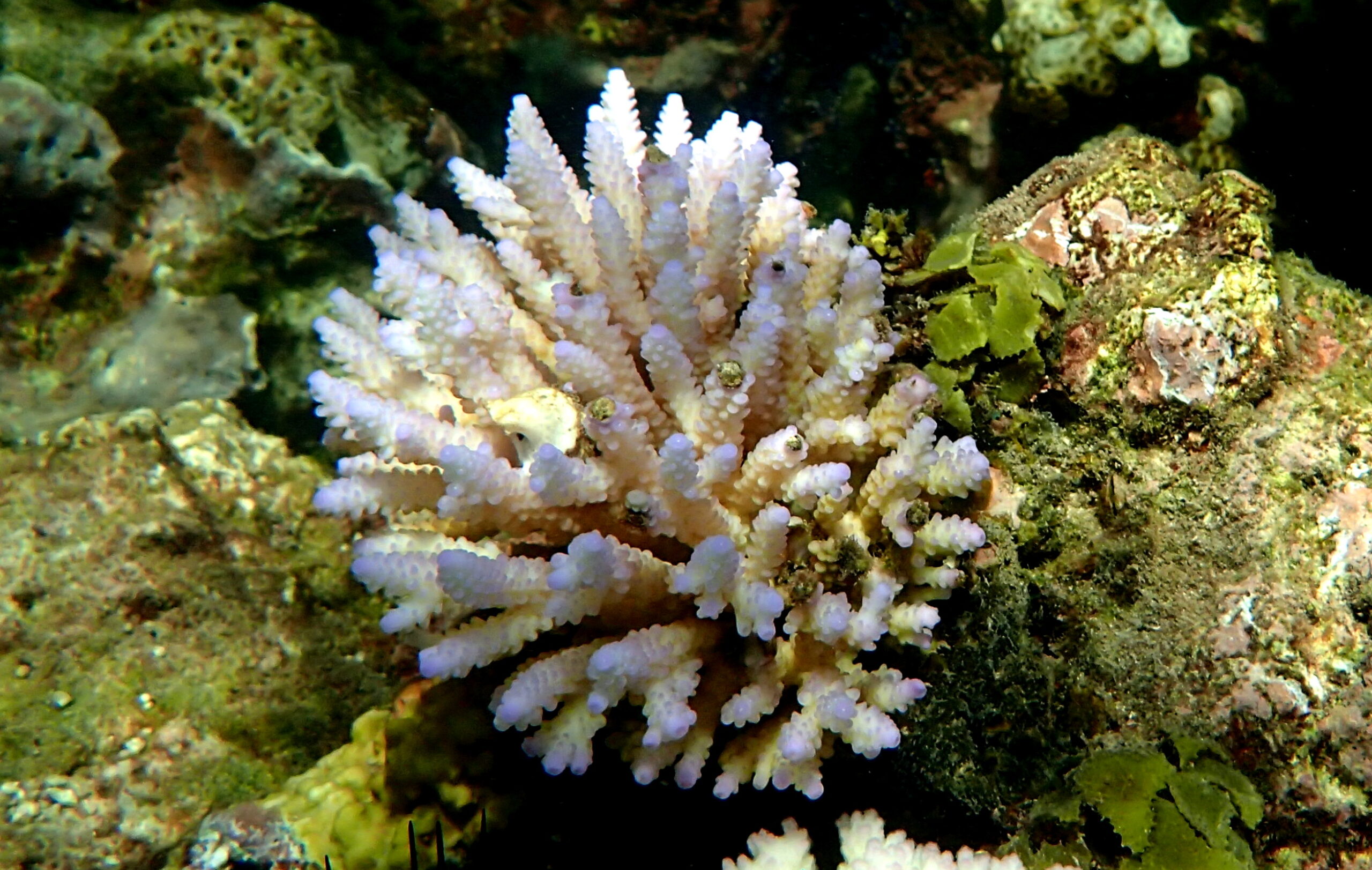
A living coral colony.
Why do we have to do it now?
Coral reefs are dying around the world due to enormous pressures they get from pollution, destructive fishing practices, and overexploitation. As we mentioned earlier large-scale Coral bleaching is due to rising ocean temperatures and acidification caused by climate change, predation, and other human-caused pressures. Since the First mass coral bleaching event in 1998 el Nino, corals have continued to decline at a threatening speed. This continues to be a cause of alarm to resource managers and users. Scientists have estimated a decline of up to 14% worldwide, that’s equivalent to nearly all coral on Australian coral reefs.
On the bright side, Coral reefs have shown to be very resilient with controlled major disturbances, having bounced back to pre-1998 levels (33.3%) in 2009. New management actions are desperately needed to ensure reefs continue to exist and recover their structure and function where that has been compromised. Developing and implementing new strategies such as Marine Protected Areas (MPAs) and Coral Aquaculture is critical to protecting and conserving these ecosystems against Local and Global threats.
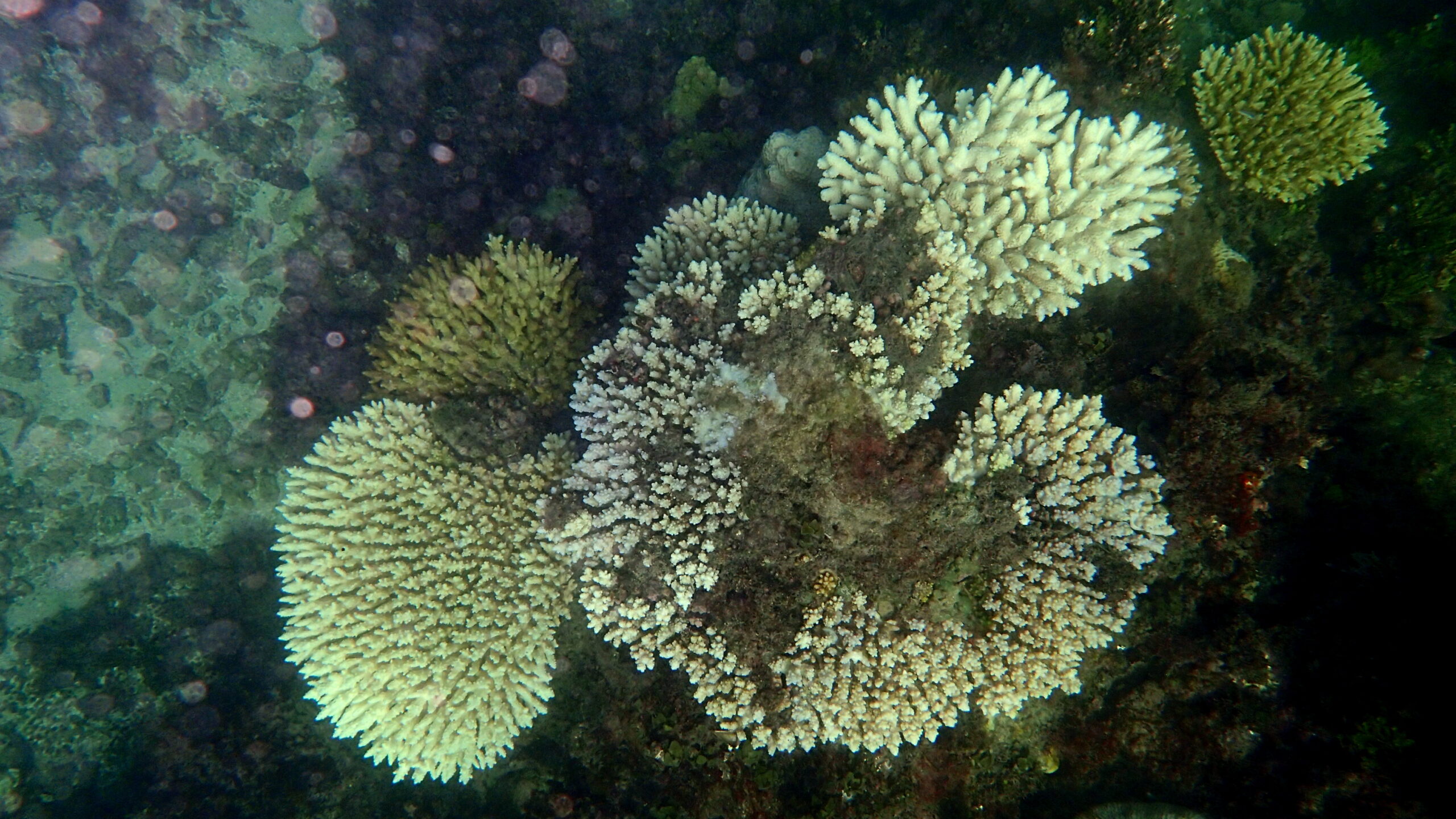
Bleached Corals
Our strategy.
Public awareness and participation are critical in this fight against time. For that reason, we (As ARK) are partnering with the Environmental managers (KWS), Local Conservationists, enthusiasts (NGOs/CBOs), and regional and global Scientists to compile a comprehensive study of our area. This will help us in implementing action steps towards protecting and restoring our natural reef.
Area of focus.
The Watamu National Marine Park and reserve (WMPA) is a unique study since it is a hotspot of a lot of biodiversities. There are several ecosystems integrated into. These include the Mida Creek, Mangrove Forests, nearby Arabuko Sokoke nature reserve, Beaches, Seagrass, and Coral reef ecosystems. The Watamu Marine Park (WMP) being a fully no-take protected zone by the Kenyan Law since 1968, makes it a unique and ideal spot to do coral gardening.
In addition to the obvious benefits that come with it being a protected area, it contains an abundance of herbivores. These herbivores assist in the cultivation of the corals since they eat the algae, the natural competitors of hard corals. The park is also strategically located in a lagoon hence protected from extreme currents and wave action from the open ocean. It is also shallow enough to be accessed by snorkeling. Watamu is also a tourist destination, hence giving us the advantage of incorporating the tourism sector in the process.
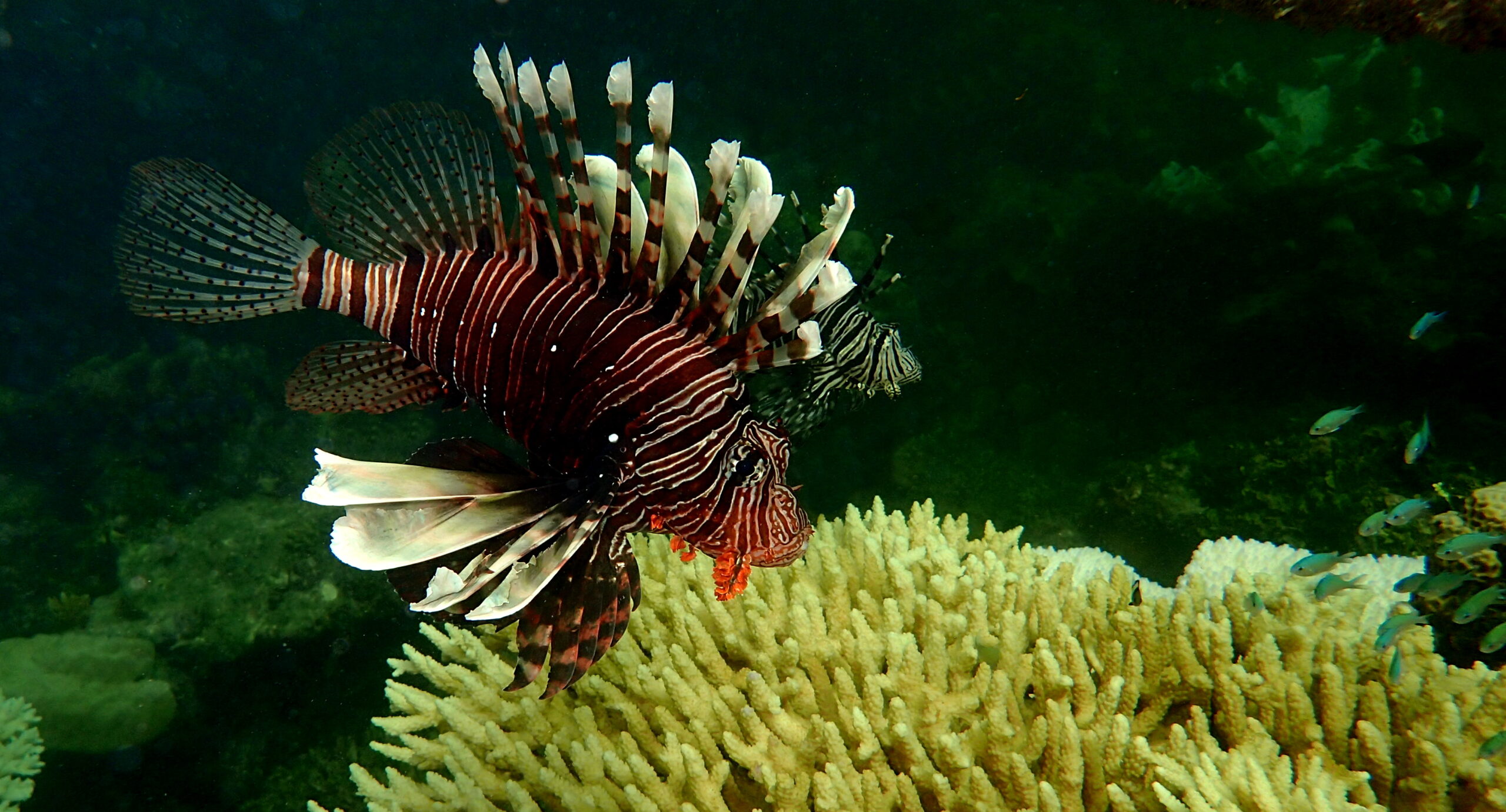
Indian Lionfish on a coral
Plan execution.
The process of coral gardening will involve a few steps. After collecting small pieces of corals that have been broken off the natural reef (preferably called “Corals of Opportunity”), we break them further to the size of a fingernail (1cm cubic). They then will be attached to artificial nursery structures made of metal rebars(preferably called “Table”). After that, they will grow in optimum conditions for some time (from 6 months to a year depending on species). We will then find a hard substrate in a degraded reef site to outplant them hence kickstarting their natural recovery. As all this is taking place, we will be monitoring water quality changes in selected sites, growth rate, mortality, and survival rates per species in each nursery structure.
Conclusion
Over the recent past, global marine managers, scientists, and coral reef practitioners have researched and advised coral restoration as a long-term additional management tool. This is because coral restoration is important in the attempt to limit and mitigate the advanced loss of these critical ecosystems and also assist with their resilience and recovery. If implemented properly by involving local communities in every aspect, coral gardening can be a great nature-based solution for Environmental Conservation and Community empowerment.
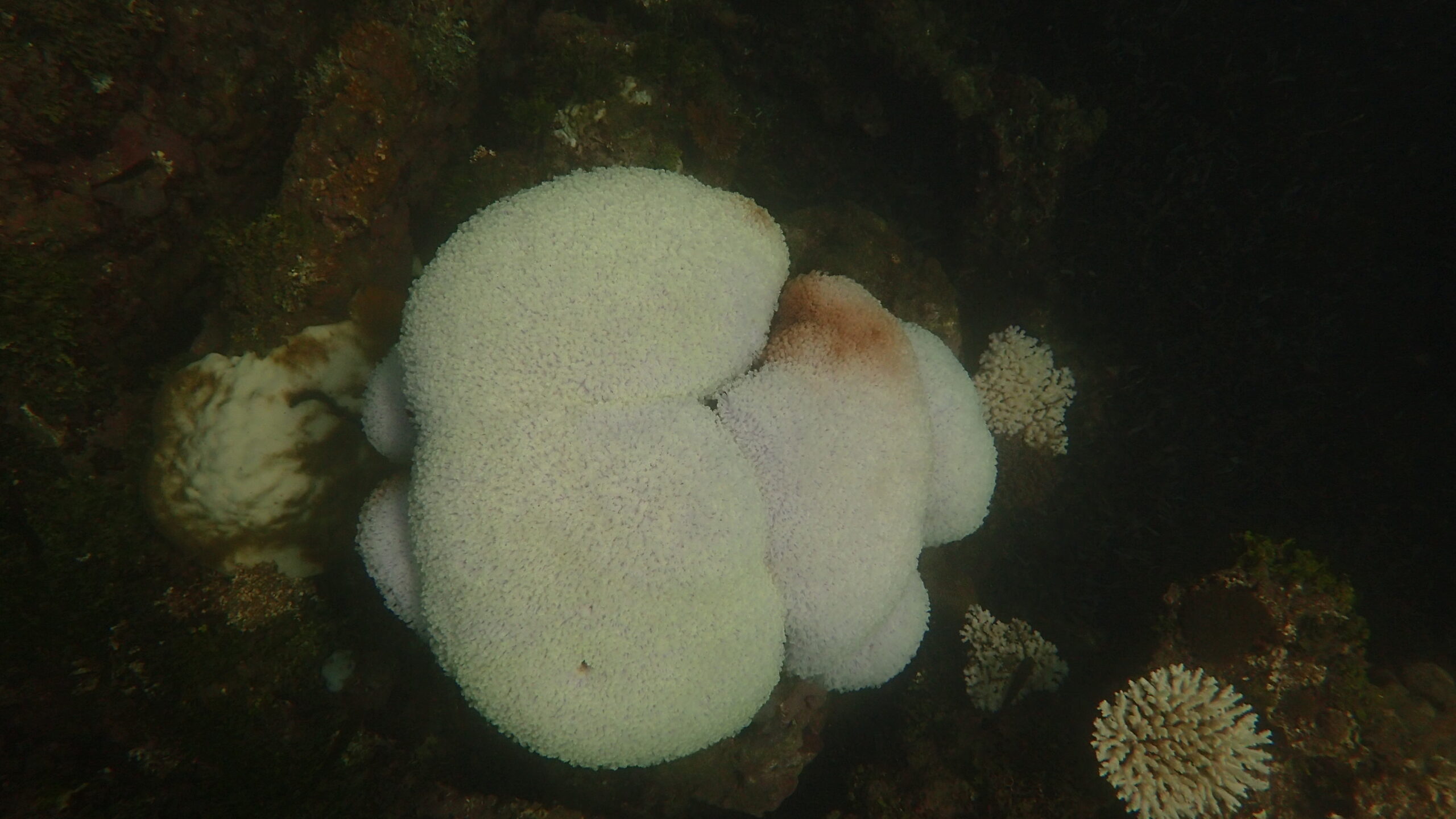
Bleached coral reef
Be part of this
Our biggest challenge right now is the funds to implement our plans. We are reaching out to any donors and well-wishers out there willing to participate in marine conservation to partner with us in whichever way they can and help see this through. When the project is up and running, we could use the help of any snorkelers around Watamu to assist in planting the corals. Together we can make this happen, together we can save our oceans, together we can restore these important ecosystems. If you feel you can be part of this, please write to us at, kenya@arocha.org or communications.kenya@arocha.org. Stay blessed!
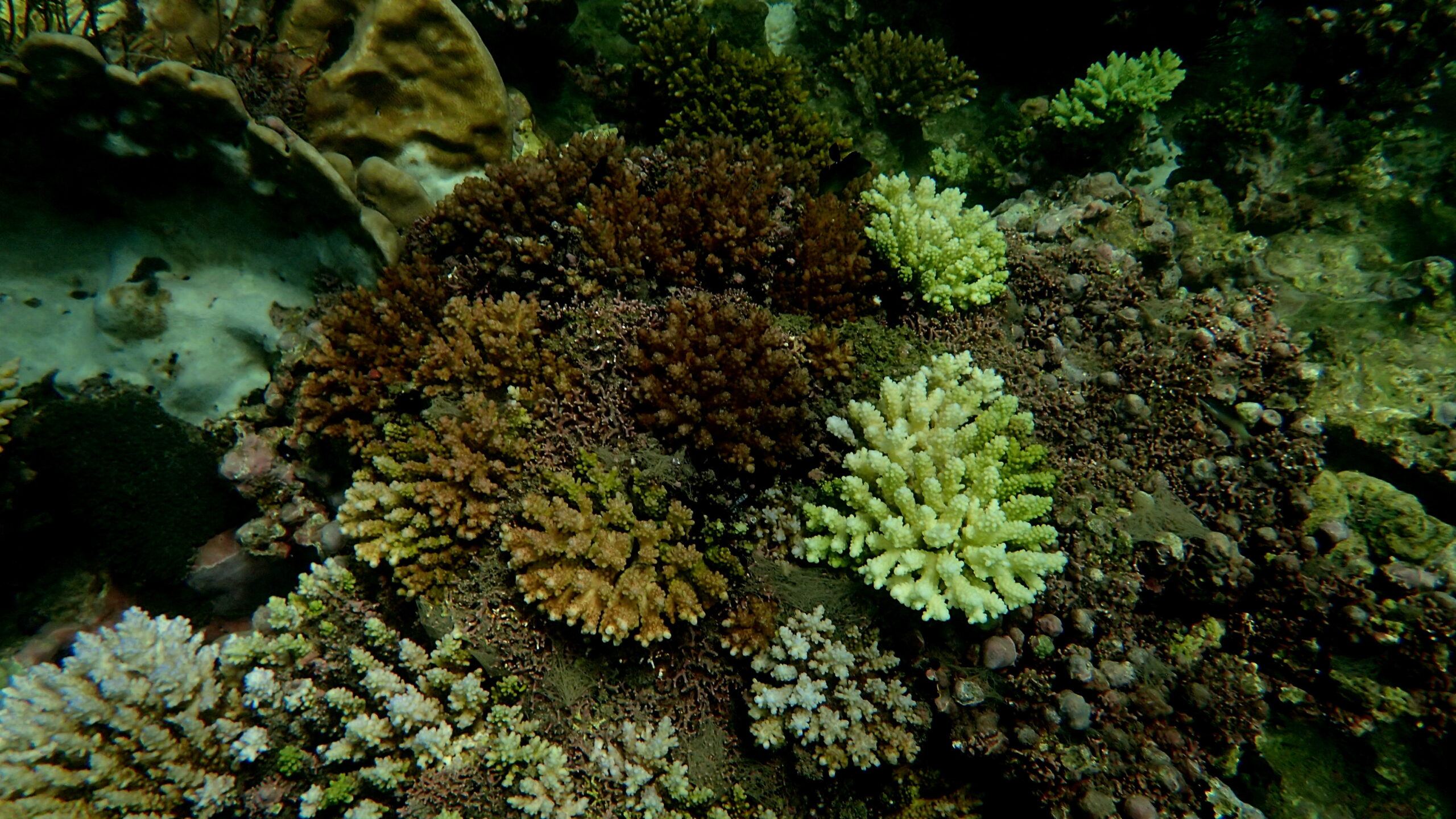
A health coral reef
